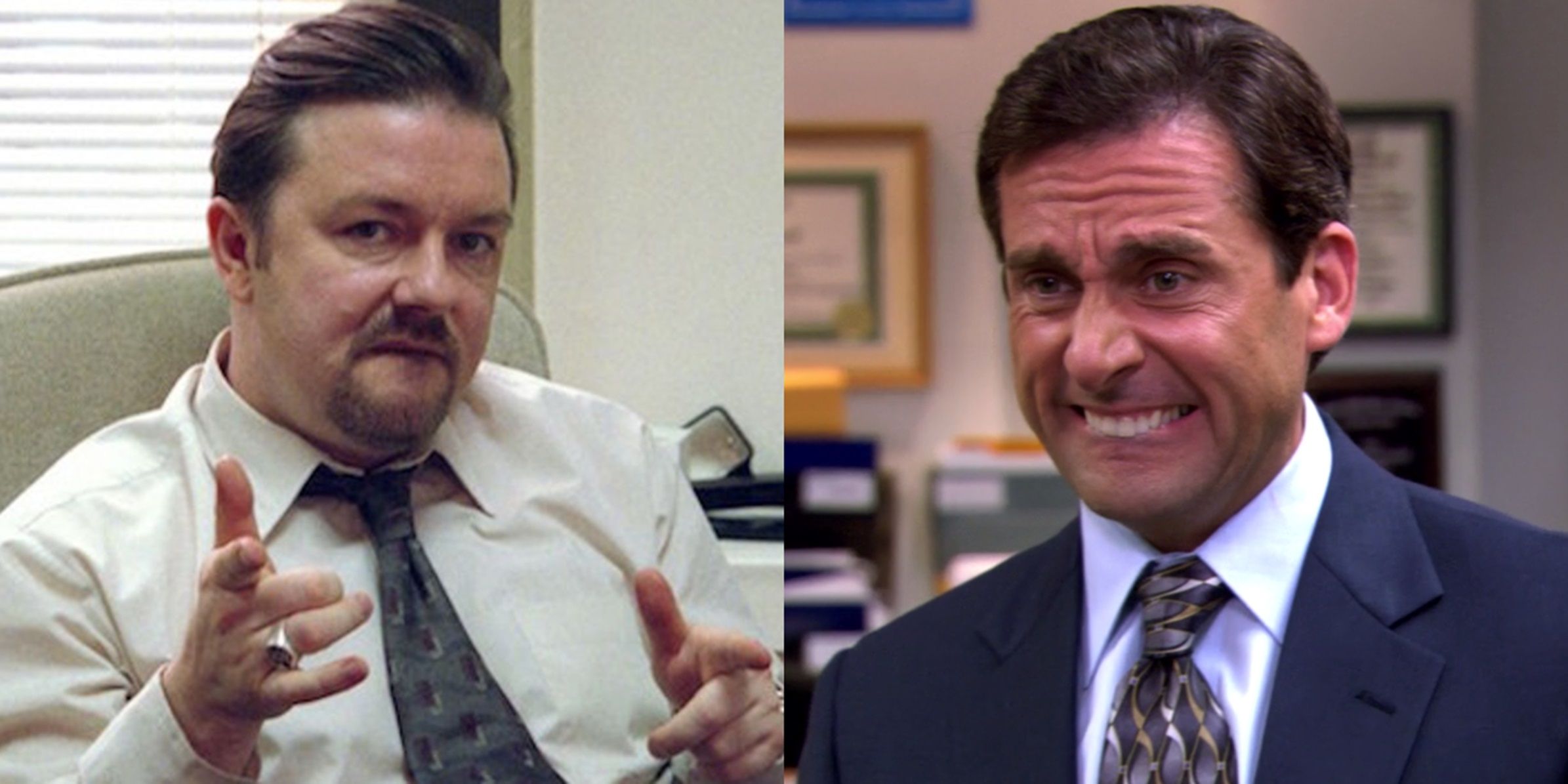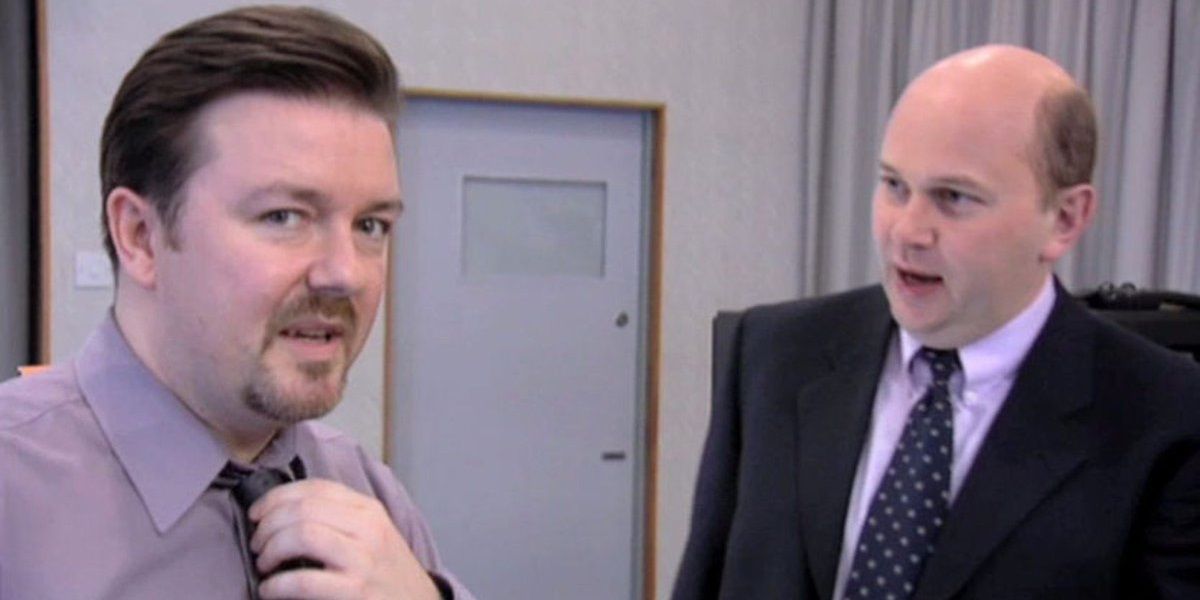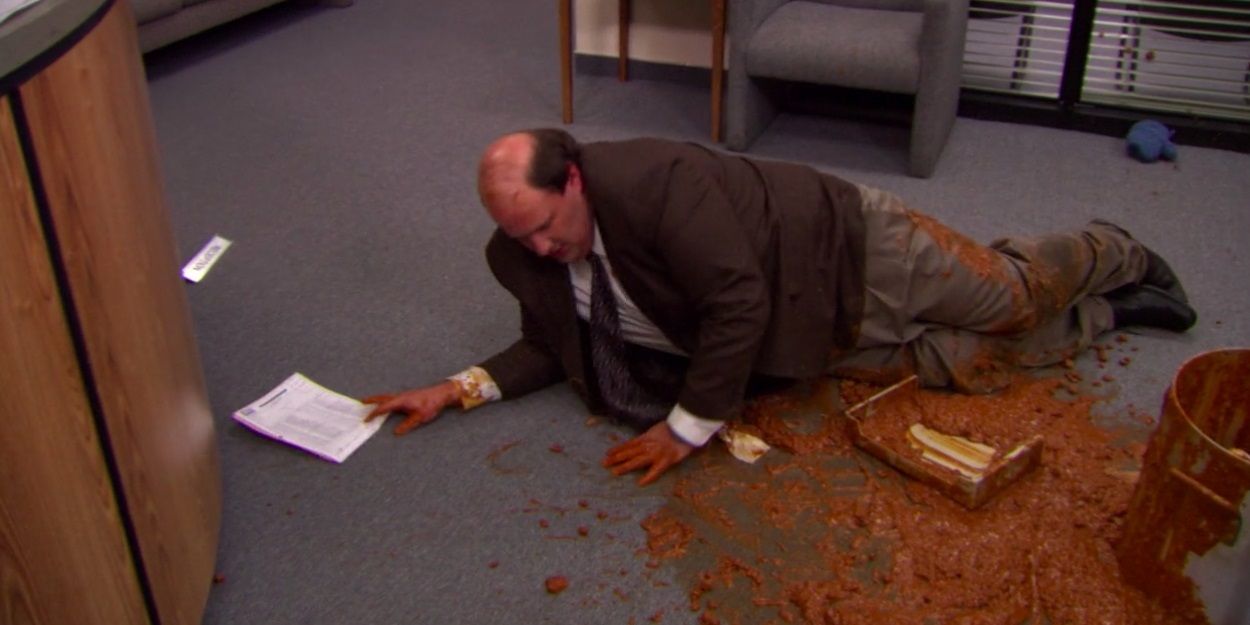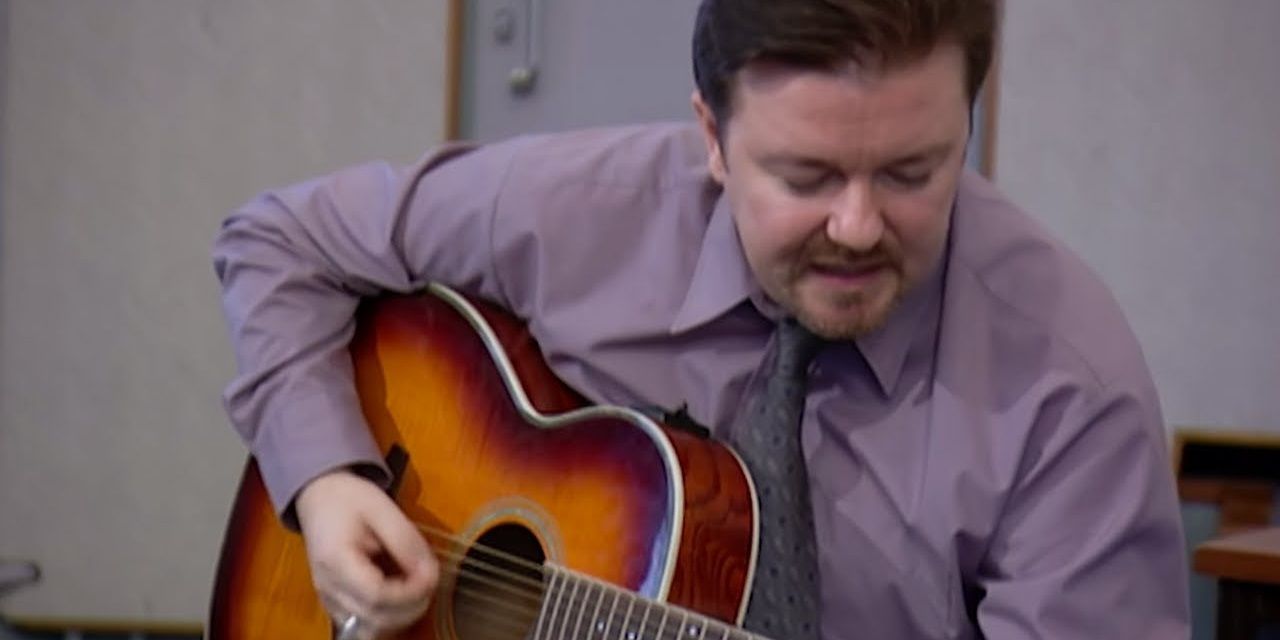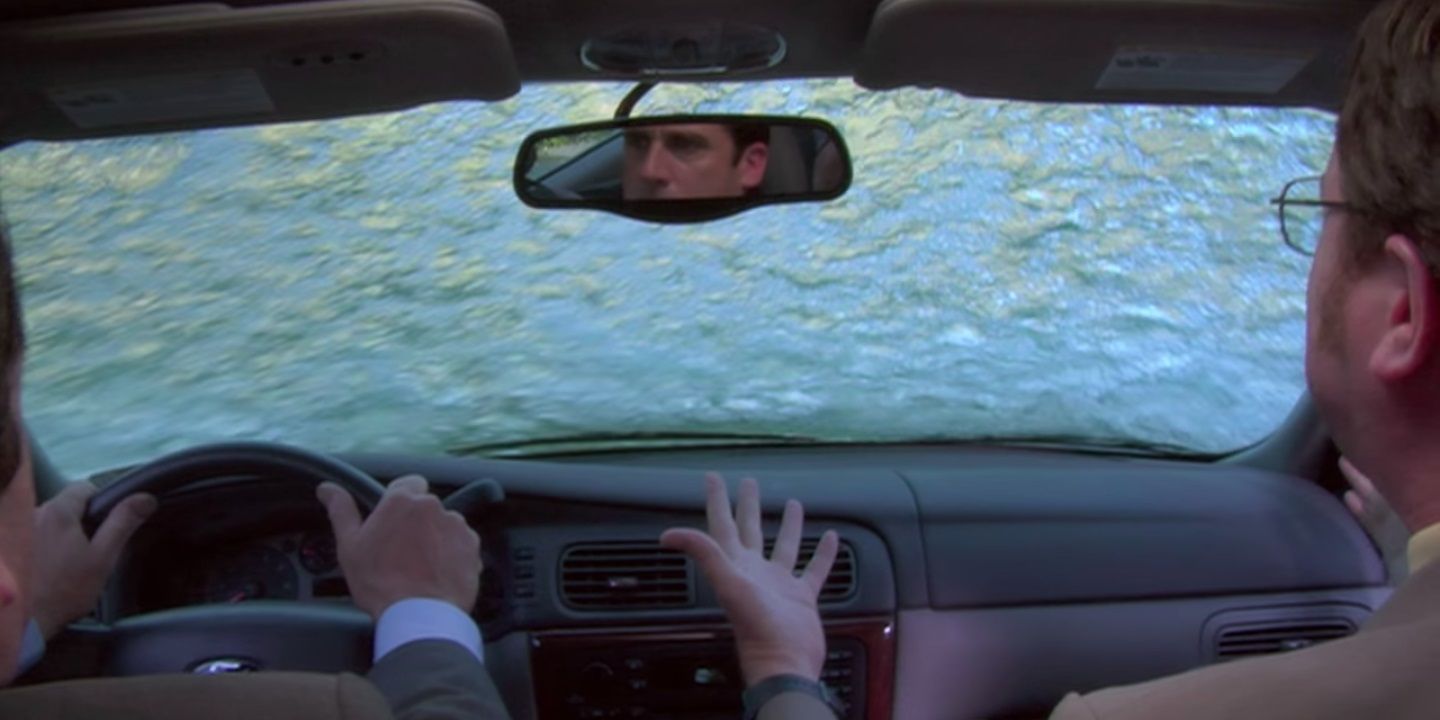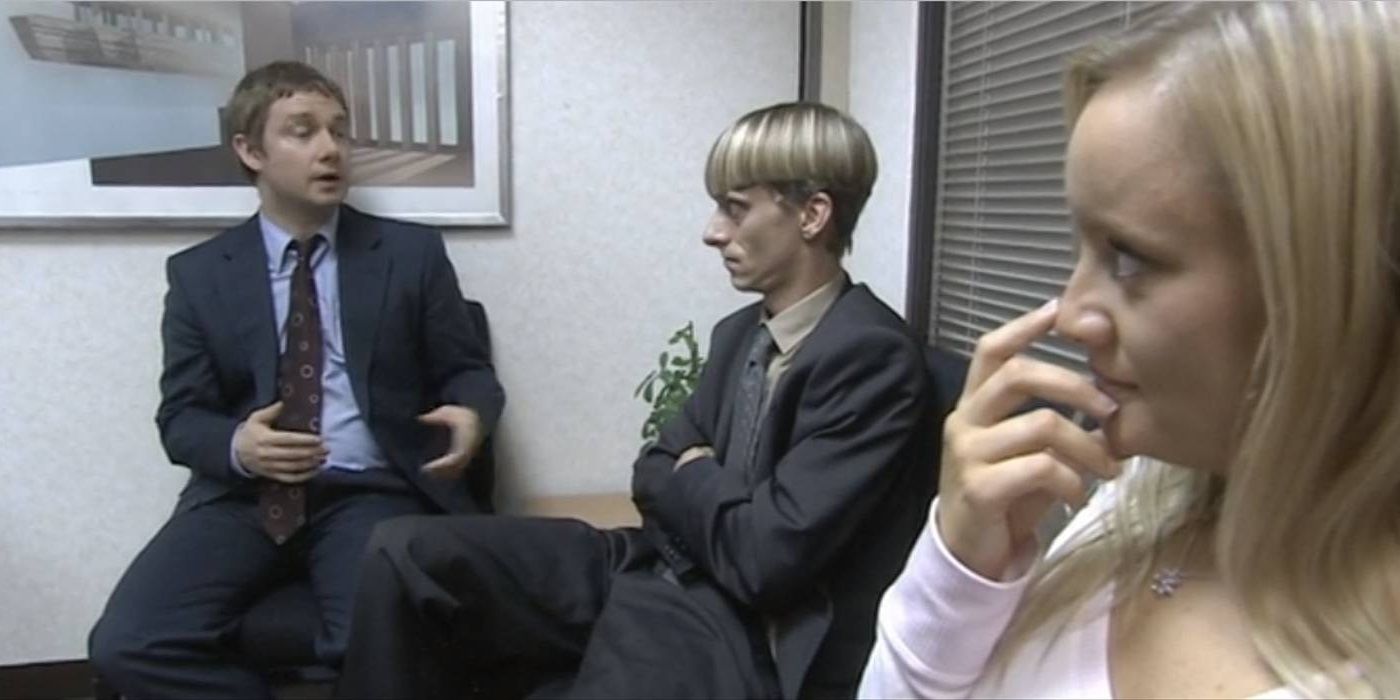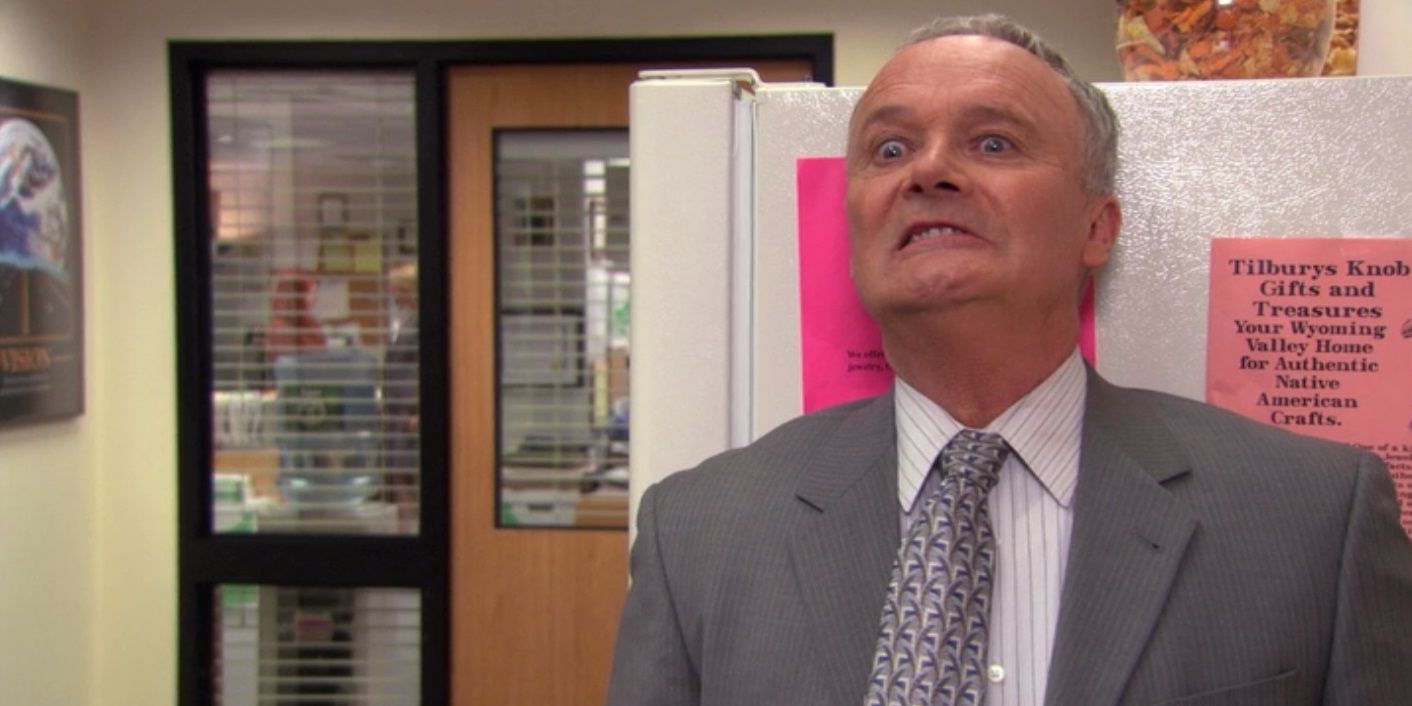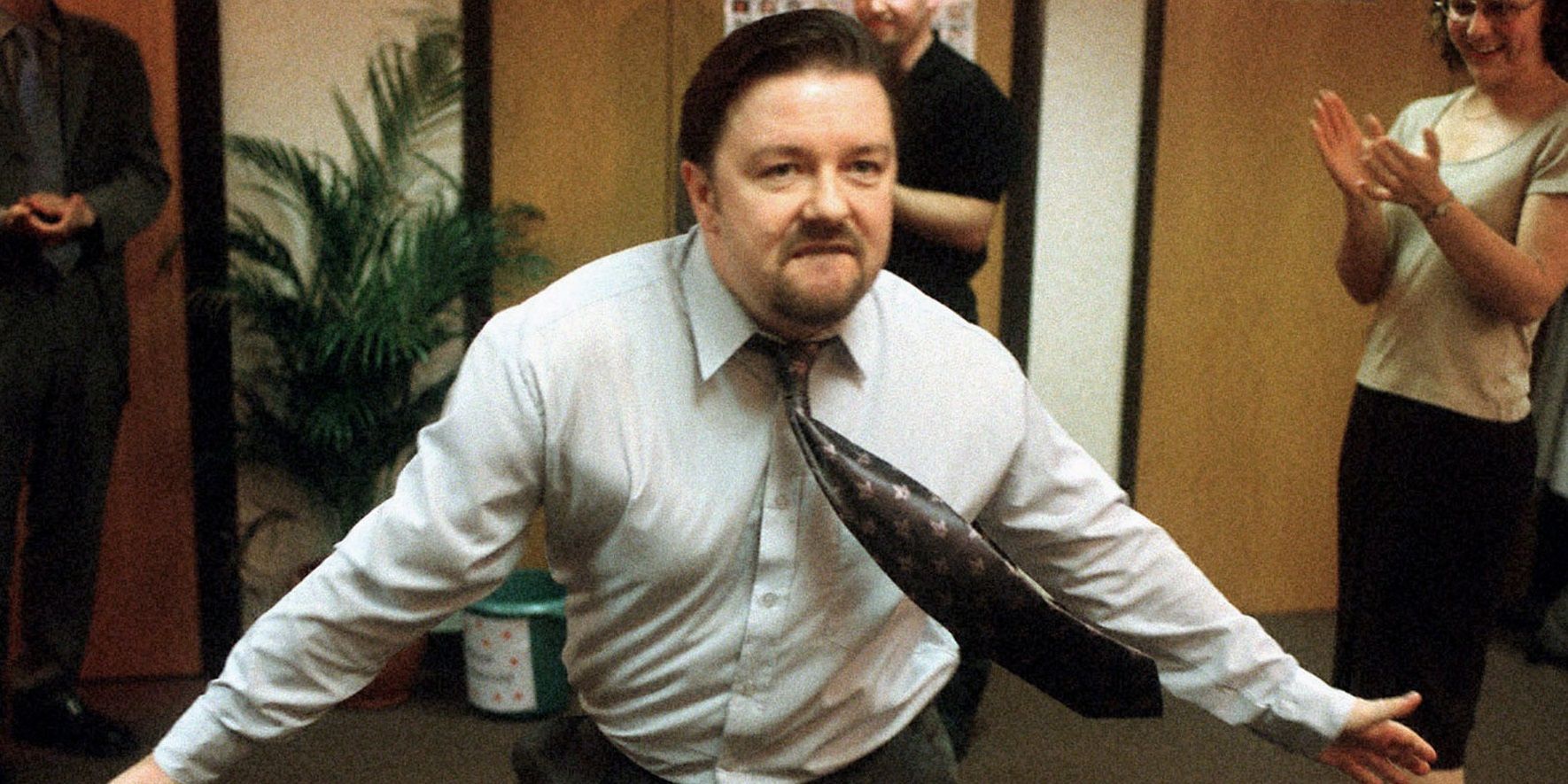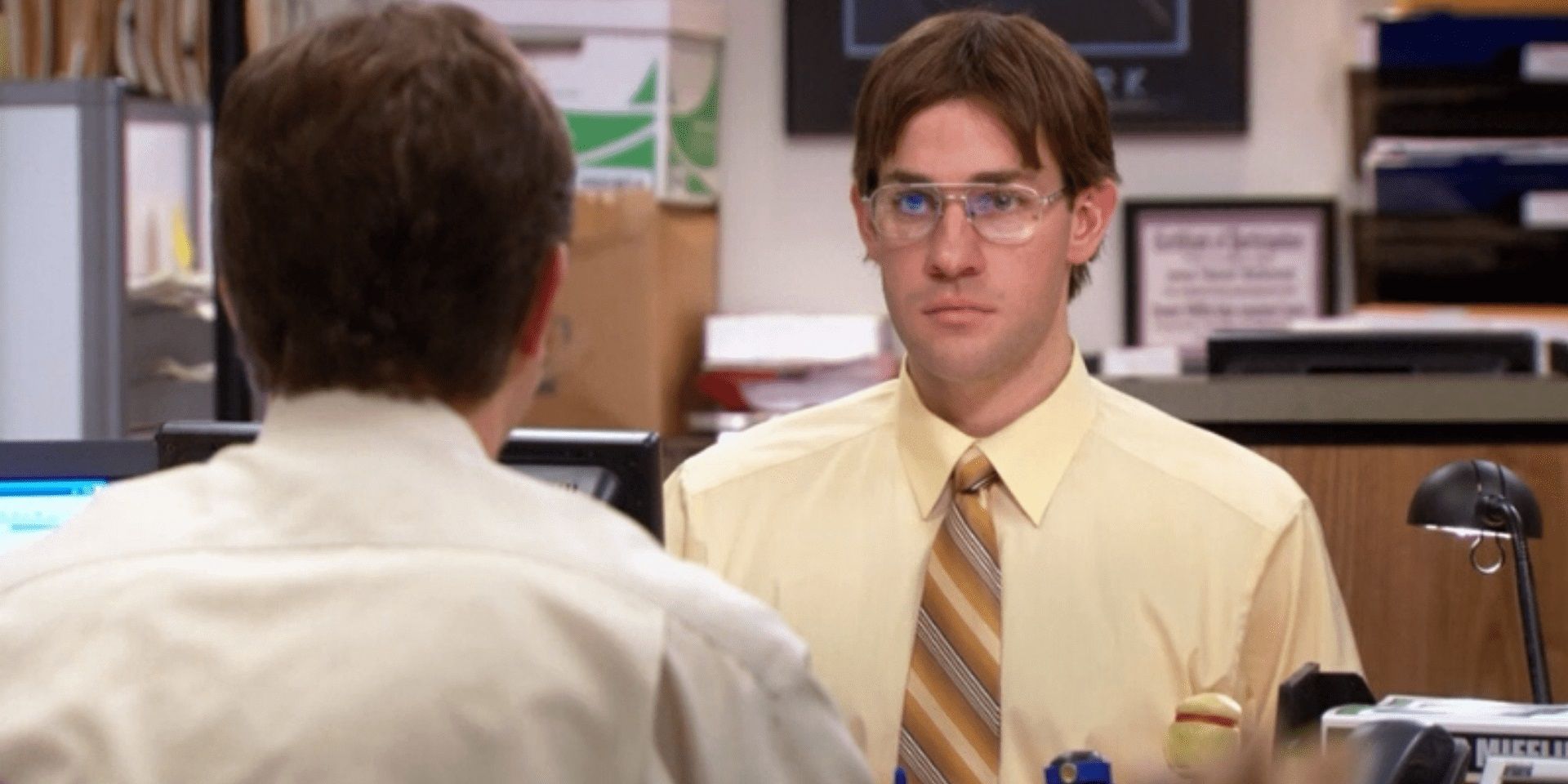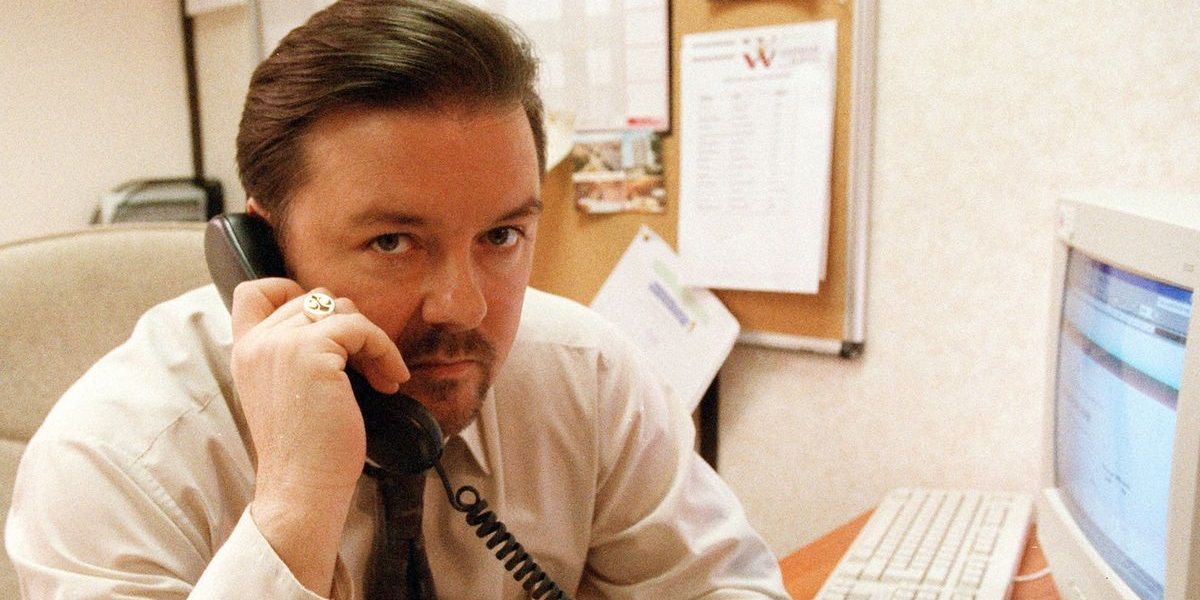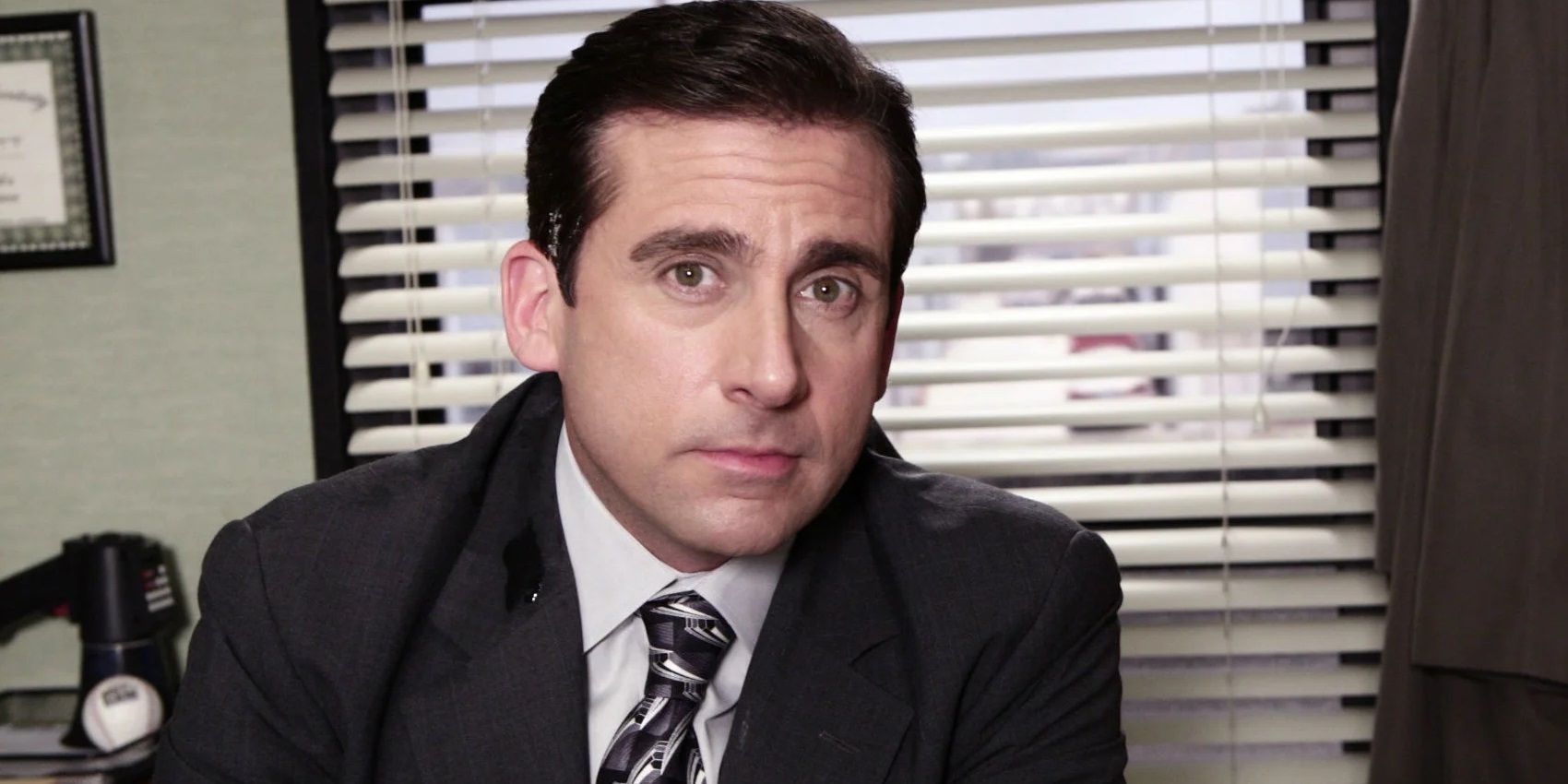Ricky Gervais and Stephen Merchant’s The Office is remembered as one of the greatest British sitcoms of all time, while Greg Daniels and Michael Schur’s remake of The Office is remembered as one of the greatest American sitcoms of all time. So, a debate has raged for years about which show is best.
The truth is that naming one as the best would be completely subjective. They both rank among the greatest TV series ever made and each have plenty going for them. The best traits of the original series are wildly different than the best traits of the remake.
British Original: Naturalism
The U.S. remake of The Office had all the bright lighting, artificial storytelling, and perfectly crafted lines that are supposed to be off-the-cuff remarks of the average sitcom. This can be excused because it’s one of the greatest sitcoms ever made, but there’s something beautiful about the naturalistic tone of the original series.
Some fans of the American remake see the painful realism of the British original as a negative thing, but Gervais and Merchant’s ability to write and shoot scripted scenes that have the genuine feel of a human interaction in a mundane workplace is flawless.
U.S. Remake: The Cold Opens
While the British original had little post-credits scenes at the end of each episode, the American remake had short scenes before the opening titles (because of the differences in how TV works in each country).
From Dwight’s fire drill to Kevin’s chili disaster, the writers used these cold opens for some of the funniest moments in the show’s history.
British Original: Cringe Humor
Ricky Gervais is a cringe comedy legend. He seems to revel in the comic value of uncomfortable situations.
There was plenty of cringe humor in the American remake, but it was a lot broader. Robert California vomiting in a trash can pales in comparison to the relatable agony of Chris Finch being a sore loser after losing a quiz and insisting on outlandish rematches in a desperate attempt to prove his worth.
U.S. Remake: Absurdist Humor
While the American remake does feature plenty of the British original’s signature cringe humor, its main form of comedic currency is something else entirely. From Michael driving his car into a lake to Dwight wearing the face of a CPR dummy, NBC’s The Office is a work of pure absurdism.
Just as the British original used its lack of a laughter track to bask in the cringe, the American remake used it to emphasize the absurdity of certain situations and play them in a deadpan style.
British Original: No Fat
The best thing about the British original is that there are only 12 episodes and a Christmas special that acts as a series finale, so there’s no fat. There isn’t a single bad episode, although the classics, like “Training” and “Charity,” do stand out from their peers.
There are a ton of storylines in the American remake that missed the mark, like Jim’s short-lived stint as co-manager or Dwight’s Floridian task force, while the last two seasons are filled with dreadful episodes reminding fans that the show went on for far too long.
U.S. Remake: Well-Developed Minor Characters
Since the original British series only had 12 episodes, none of the other employees of Wernham Hogg are as rounded or well-developed as main characters like David and Gareth. But across 200 episodes, the writers of the American remake had plenty of time to flesh out the background characters.
There’s no way The Office would be as fun without Kevin, Oscar, Meredith, Stanley, Creed, Phyllis, Angela, Kelly, Darryl, Erin, and countless other characters that make up the Dunder Mifflin ensemble outside the main cast.
British Original: No “Jokes,” Just Situations
Most of the British Office’s detractors’ main concern is that there are no traditional “jokes.” The U.S. remake is jam-packed with jokes, both scripted and ad-libbed, but all the dialogue in the original show feels like mundane everyday conversation.
But that’s one of its greatest strengths. The characters don’t inexplicably speak in jokes. The comedy always comes from the juxtaposition of characters and situations.
U.S. Remake: Jim’s Pranks On Dwight
One of the funniest running gags in the American series is Jim’s pranks against Dwight. In the pilot episode, just as Tim did to Gareth in the British original, Jim put Dwight’s stapler in Jell-O.
From there, the pranks got more and more elaborate as Jim moved Dwight’s desk into the men’s room, , stole Dwight’s identity, sent him a fax from his future self, rigged a mysterious wire running from Dwight’s desk up a telephone pole, and faked his own death — and that’s just the tip of the iceberg.
British Original: Ricky Gervais’ Performance As David Brent
Only Ricky Gervais could make a character like David Brent sympathetic. Any other actor would play David as a one-dimensional annoying boss whose co-workers can’t stand him (in other words, Michael Scott in the first season of the remake).
But Gervais brings a genuine humanity to David that exposes the depths of his despair and insecurities, which makes him feel like a real person.
U.S. Remake: Steve Carell’s Performance As Michael Scott
The U.S. version of The Office never fully recovered from Steve Carell’s departure. He was the glue that held the whole show together and he left a huge Michael-shaped hole in the series at the end of the seventh season.
While Michael Scott was introduced as David Brent with an American accent in season 1, Carell made the role his own over the years, with goofy charm and a huge heart.

